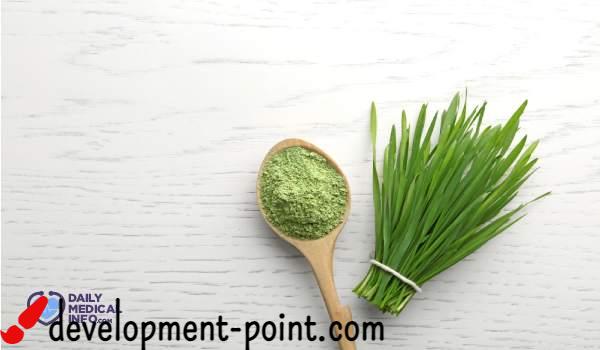Acne treatment with herbs and natural recipes
Skin usually reflects our general level of health. Where the skin usually glows when a diet rich in nutrients, in contrast, the appearance of blackheads and pimples in the skin may indicate hormonal imbalance and poor nutrition. Can acne be treated with herbs and natural remedies at home? This is what we will learn about through this article.
What is acne?
Acne is one of the common skin diseases among teenagers, which occurs as a result of blockage of hair follicles with dead skin cells and oils. Which causes pimples to appear. Acne is usually classified into two types:
- Non-inflammatory acne: This is when blackheads and whiteheads appear.
- Inflammatory acne: It usually results from infection with the bacteria P. Acnes, which leads to the appearance of large, inflamed cysts on the surface of the skin.
Herbal acne treatment
Acne is one of the most common skin diseases worldwide. Acne may be described as mild, moderate, or severe. It is good that acne can be treated in the early stages, and the resulting hyperpigmentation can be treated using many safe home remedies, Among the best natural remedies for treating acne scars are:
Green tea
Drinking green tea or using green tea extract on the skin may help treat acne, because it contains high concentrations of antioxidants, which in turn help break down chemicals and get rid of oils and dead skin cells that may harm healthy cells.
Despite the limited evidence, the results of one study indicated a decrease in the appearance of white and black heads by a rate ranging from 79% to 89% when using green tea extract of polyphenols for a period of 8 weeks.
Cinnamon acne treatment
Cinnamon was known to be used in the treatment of many diseases of the respiratory and digestive systems, as well as in the treatment of some women’s diseases. Cinnamon has anti-inflammatory and anti-bacterial properties as well, which helps promote wound healing.
In order to achieve more effective results, a mixture of cinnamon and honey can be used together to treat acne and eliminate bacteria that cause inflammation of the pores.
Benefits of yeast for acne
One strain of brewer’s yeast called Hansen CBS has been shown to reduce acne. This is when used on the face or when taken orally. However, eating it may lead to flatulence and increased gas.
Yeast mask for acne
A yeast mask can be made by following these steps:
- Mix a teaspoon of liquid brewer’s yeast with a tablespoon of lemon juice.
- Then the dough is placed on the face and on the pimple-affected areas.
tea tree oil
One of the herbal ways to treat acne is also the use of tea tree oilThis oil is characterized by its ability to treat skin problems and wounds, due to its anti-inflammatory properties.
Thus, the use of tea tree oil may be effective in reducing acne. This was confirmed by a study conducted in 1990, where a topical gel containing 5% tea tree oil was used with another topical cream containing 5% benzoyl peroxide. Which has proven effective in reducing pimples and acne.
How to use tea tree oil
Tea tree oil is a strong essential oil that must be diluted before use on the skin. To prepare the mixture at home, follow these steps:
- One part of tea tree oil is added to 9 parts of water
- Use a piece of cotton soaked in the mixture, then apply it to the pimple-affected areas
- This process is repeated one to two times a day, depending on your needs
Treating acne with honey
Using raw, unprocessed honey helps balance the bacteria on the skin, making it one of the best ways to treat acne with herbal and natural remedies.
Honey soothes inflamed skin and speeds up the healing process of skin cells, due to its antibacterial and anti-inflammatory properties. According to many studies, original Manuka honey is more effective than many other products.
In a 2016 study, researchers also found that purified bee venom may help kill acne-causing bacteria.
An improvement was observed in the condition of people who used the gel or cosmetics containing pure bee venom after using it for about 6 weeks.
Honey and cinnamon mask for acne
- Mix 1 tablespoon of cinnamon powder with 2 to 3 teaspoons of honey until the mixture becomes a paste
- The mixture is placed on the face until it covers pimples and acne for about 10 minutes
- Then wash the face with lukewarm water afterwards
Garlic acne treatment
It was common in folk medicine to use garlic in the treatment of acne, due to the garlic containing organic sulfur compounds. Where organic sulfur is characterized by its ability to treat infections, resist infection factors, and enhance the functioning of the body’s immune system.
To use garlic and benefit from its benefits, garlic can be added to the daily diet, and some people chew a whole clove of garlic, or grind garlic and rub it on toast.
This is in addition to the possibility of using garlic powder or capsules. However, it is not recommended to put garlic directly on the skin, so as not to cause irritation and burns to the skin.
Benefits of turmeric for the treatment of acne
One of the natural remedies for acne scars is the use of turmeric. Turmeric contains the compound curcumin, which has antimicrobial, antioxidant and anti-inflammatory properties. Which means it may be effective in fighting acne-causing bacteria.
How to make a turmeric face mask
- Mix 1 part lemon juice with 1/2 part turmeric powder until it becomes a smooth paste
- Use a cotton ball to apply the mixture directly to the affected areas of the skin
- Leave the mixture on the skin for about 15 minutes, then wash the skin with cold water and pat dry
Is apple cider vinegar useful for treating acne?
The use of apple cider vinegar is one of the common ways to treat acne in folk medicine, due to the organic acids it contains. Which helps resist acne-causing bacteria, and reduce the appearance of pimples and scars.
However, on the other hand, you should be careful when using apple cider vinegar, as it contains more acidity than the skin can bear, especially sensitive skin. Therefore, apple cider vinegar must be diluted before it is used on the skin.
How to use apple cider vinegar to treat acne
- Mix an amount of apple cider vinegar with 3 parts of water, and for those with sensitive skin, more water can be added
- Cleanse the face with a mild cleanser, then leave it to dry
- The mixture is applied using a cotton ball on the affected areas of the skin
- Leave the mixture on the skin for 5 to 20 seconds, then rinse with water and leave the skin to dry
- These steps are repeated once or twice a day as needed
Treat acne at home
In addition to treating acne with herbs and natural remedies, it is possible to follow some tips and home procedures in order to help in treatment, and these procedures include:
- Do not try to touch pimples and pimples: So that this does not cause increased skin irritation with the possibility of increasing the spread of infection to other areas that were not infected.
- Use an appropriate face wash: Many soaps and facial cleansers contain a high level of acid. Which may lead to skin irritation and worsen the condition, especially for those with sensitive skin.
- Use skin care products that do not contain oils: This is to protect the pores from the risk of being clogged by greasy or oily products.
- Moisturizing the skin: In order to facilitate the process of healing the effects of pimples, and reduce the risk of spreading infection, and moisturizing the skin helps the growth of new skin cells properly. It is usually recommended to drink about 6 to 8 cups of fluids per day in order to maintain body moisture.
- Reducing stress levels: As it has been proven that increased stress and stress leads to increased levels of the hormone androgen, which in turn stimulates hair follicles and sebaceous glands in the pores, which increases the possibility of acne.
- Get some rest: Relaxation along with a healthy diet and physical activity can help reduce breakouts and breakouts, and restore healthy skin.
- Avoid harmful sunlight: The sun’s ultraviolet rays stimulate pigment-producing cells, which may increase the risk of acne scarring. Therefore, it is better not to be exposed to direct sunlight for long periods of time, with the possibility of using natural sunscreens to protect the skin.
Finally, you should know that the nature of the skin differs from one person to another, so the effectiveness of treating acne with natural remedies may vary from one case to another. It should also be ensured that there is no allergic reaction to any kind of natural herbs used in treatment, whether mentioned in the article or not mentioned, in order to avoid any side effects on health.

